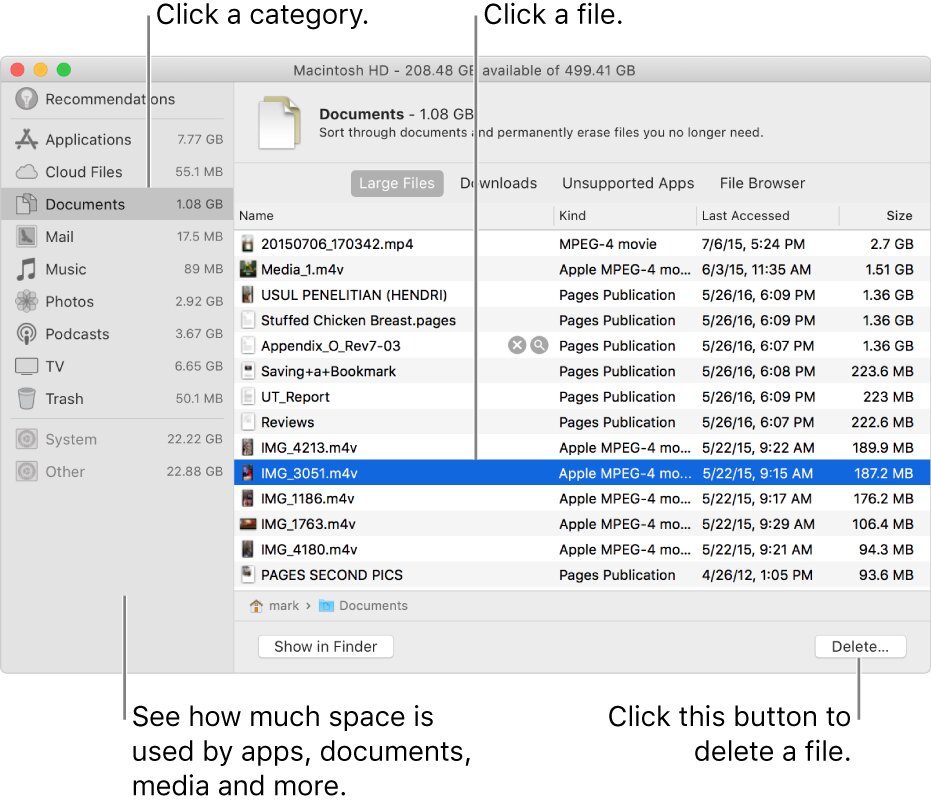If always been an important thing that you should always clean your Mac, to maintain the performance. If you don’t have much free space, then you might start facing problems such as slowing down and difficult while finding some files. However, it is also related to maintaining your system if you have many files on your Mac, and have you ever wondered about cleaning the trash file. Meanwhile, in case you have too many files but want to Permanently delete some specific files and folders from the trash.
Apple allows you to delete specific files that you want to remove from the trash. After deleting the file, it is temporarily stored in the trash, where you can recover data if you have deleted the files mistakenly. Where if your files were deleted mistakenly and want to delete files within the size of 8GB Permanently, then you can delete them using the file and use other options like a filter as well. Today we are going to share a bit of knowledge so you can delete the specific files from Trash on Mac.
Page Contents
Noteworthy
- Once you Permanently delete files or documents from the trash, then you would not be able to recover it.
- The Files store in the trash are temporarily for 30 Days, After 30 Days the file is permanently deleted automatically.
How you can Empty the trash on your Mac.
It has always been quite an easy task to perform the clear trash on your Mac. Follow the instructions to perform clearing the files from the trash on your Mac.
- First thing first, on your Mac at the Dock, you will find the “Trash” icon.

- Go to “Trash,” and then there is a Window that appears with the following option.
-
An empty specific item from the trash.
(if you want to delete a specific file, then you can use use the following steps.)

- Locate the file that you want to delete from your Task.
- Then, right-click on that file, and some options appear as File icon, Name, and Delete.
- There you have to choose “Delete Immediately.”
- Confirm now to verify that you want to delete the chosen file or document from your Tras on Mac.
- Click on “Delete” to remove the file or document from Trash on Mac.
- That’s it, If you want to delete multiple files then select all those and follow the same steps to delete the file.
-
Empty all of the Trash.
(If you want to clear your trash, then you can use this option.)
- On the trash, the Empty button is placed on the upper right corner of the Finder window.
- Click on the Empty button to empty the trash.
- Also, You can click on the Finder to empty the trash.
- Click on “Empty Trash” to confirm and proceed to delete.
- That’s it
How Can I Delete a Single File from Trash using the terminal?

- Open the trash in the Finder on your Mac.
- Then, Open the Terminal app.
- After that type rm -rf and then there, you have to drag the files that you want to delete from your trash.
(Ensure that dragging the files and release when the green + appears on the terminal. - Hit Enter in the terminal app.
- That’s it, your file or document has been permanently deleted from your trash.
Pro Tips
We believe this is one of the most useful methods to delete the files from trash, Removing using Terminal and Keyboard shortcut seems to be quite useful. Not to mention, you can follow the same steps to delete multiples files or folders to remove them from the trash on your Mac.
Thanks for being with us. We assume that you have successfully understood and have deleted the specific files or documents from trash on Mac. We would like to know your valuable opinion and feedback. If you have any query let us know in the comment section down below.
